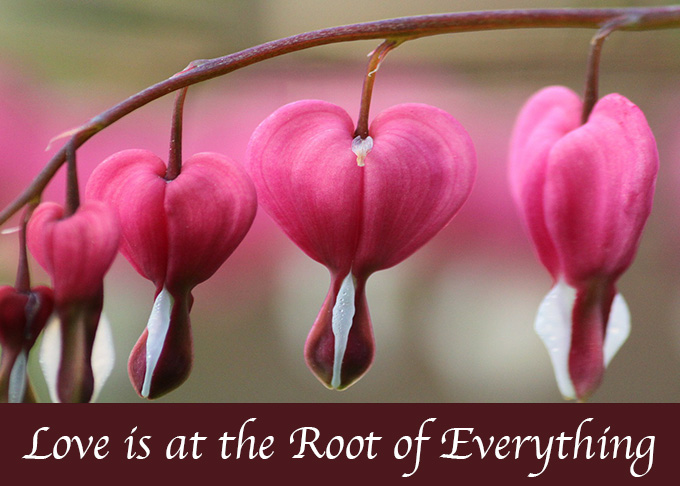Love is at the Root of Everything
Why are romance stories, or romance subplots in stories, so popular and ever-present? Because, in the words of the esteemed Fred Rogers, “love is at the root of everything. All learning, all parenting, all relationships. Love or the lack of it.”
Truer words were never spoken. This is part 2 of my series discussing truth bombs from the documentary Won’t You Be My Neighbor? (read part one here). These quotes give me a good jumping off point to start a
If love is at the root of everything, then why don’t we often see the different types of love portrayed in media? We frequently get romance stories, soulmate stories, finding your “one,” but severely lacking are friendship stories, sibling stories, and stories of love of a parent to a child—though this last one is more frequent, it is still frequently overshadowed by the romance plot.
Why are these stories so sparse? I propose that they are the easy form of conflict and entertainment, a short cut to getting your audience to relate to and care about your characters. It’s also a fairly universal concept: not everyone has a sibling, but most everyone is looking for that romantic love. The thing, though, is that what people are mostly looking for is a deep connection with someone, and we repeatedly tell them that they can only find that in romantic love.
Nope. Not even close. And believing this message is destroying us from the inside out.
Some of the most important relationships in our lives are our friends and family. These are the people who routinely see us at our worst and still love us. These are the people where we are bonded by blood or by choice, and that choice is different from the one you make for a life partner. You choose a life partner who blends with you, who has the same values as you, perhaps similar socioeconomic background and attractiveness, sexual interest, and a myriad of other conscious and unconscious reasons that add up to, “This is a good person to build a life with.” Friends, on the other hand? Friends don’t need to check all those boxes. Friends can be as flighty and irresponsible and crazy as you and it doesn’t matter. You’re not relying on them to ground you and provide you with basic living needs.
This isn’t to say that one connection is necessarily better than another, just different. No one person should be everything to you. And no one person CAN. Yet, this is what we are telling our youth and ourselves time and again with the bevy of romance stories that exist in our media. This is what we are teaching and preaching.
In adulthood, seeing friends becomes the last priority on the list, behind quality time with partner, taking care of kids, work, and self-care (not in any particular order). But should it? Shouldn’t time with friends be PART of self-care, part of a complete life? And if we aren’t exploring this concept in media (specifically romance stories), then how are we supposed to embody it in our everyday lives?
Bringing this discussion back to writing, I once had an editor from one of the big New York publishing houses tell me that it would be a downside to not have a romantic love story in my book. “But I’m more interested in telling stories of other kinds of love. Friendship love, literal soul-mate love, not romantic.” She still encouraged me to add a romantic love subplot to my book. Thank you for taking the time to give me advice, but also, thank you, no.
I understand that love stories are universal. Of course they are. But, guess what? There are MANY kinds of love: family love, platonic love, friend love, etc. Not just romantic love. And while romance is an important aspect in lives to share in our stories, it’s not the ONLY story. We need to remember that and embrace that. We are more than the sum of a love story’s parts.


